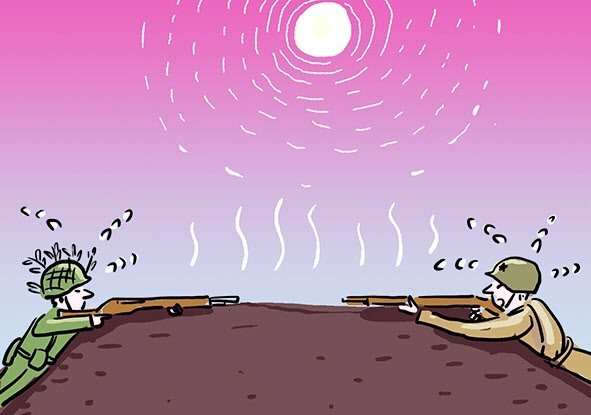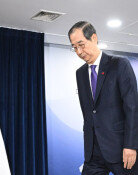An unformidable summer
An unformidable summer
Posted August. 29, 2023 08:26,
Updated August. 29, 2023 08:26

Korea faced one of the warmest summers on record this year. Records show that the temperature reached 35 degrees Celsius in August 1950 when the Korean War was underway. Though it wasn’t as hot in 1994, the hottest summer on record, or 2023, it was a terrible suffering for those in Korea.
Throughout August, the ROK/US Combined Forces Command (CFC) and the North Korean army repeated a push-and-pull battle near the Nakdong River. For South Korea, it was the last line of defense. For North Korea, it was their final step to victory. At that time, the mountains in South Korea were nearly bare. It was impossible to avoid the scorching sun though one could avoid bullets hiding in the trench. Wearing heavy uniforms and helmets and without water or food, soldiers held on to their gun barrels and fought for their lives. There is no data showing how many passed out from sunstroke, those that ran out of stamina, felt dizzy and difficult to move, were injured, or passed away.
The defense lines of the Nakdong River in the summer of 1940 were fiercer and in danger than we knew. We had almost lost Daegu. If North Korean forces hadn’t been hesitant to enter the streets of the city, whatever the reason might have been, the Korean War might have taken a different turn.
On Aug 16, the U.S. forces carpet bombed Tabu-dong, dropping 960 tons of bombs with B29 bombers. The effect of the bombing varies depending on perspective, but it was a fierce explosion.
Elite troops, including marines, the first U.S. Calvary Division, were assigned in addition to the U.S. 24th and 25th Divisions. Korean forces, however, had to do with untrained conscripted soldiers. This was the same situation for North Korean forces, and as supply ships grew scarcer and more lives were taken, their combat power began to grow depleted.
Towards the end of August, North Korean forces lost power to defend the Nakdong River before the Incheon Landing Operation. It was then that the sweltering heat subsided, and winds grew cooler. Despite the waging war, even soldiers must have welcomed the change of weather.







